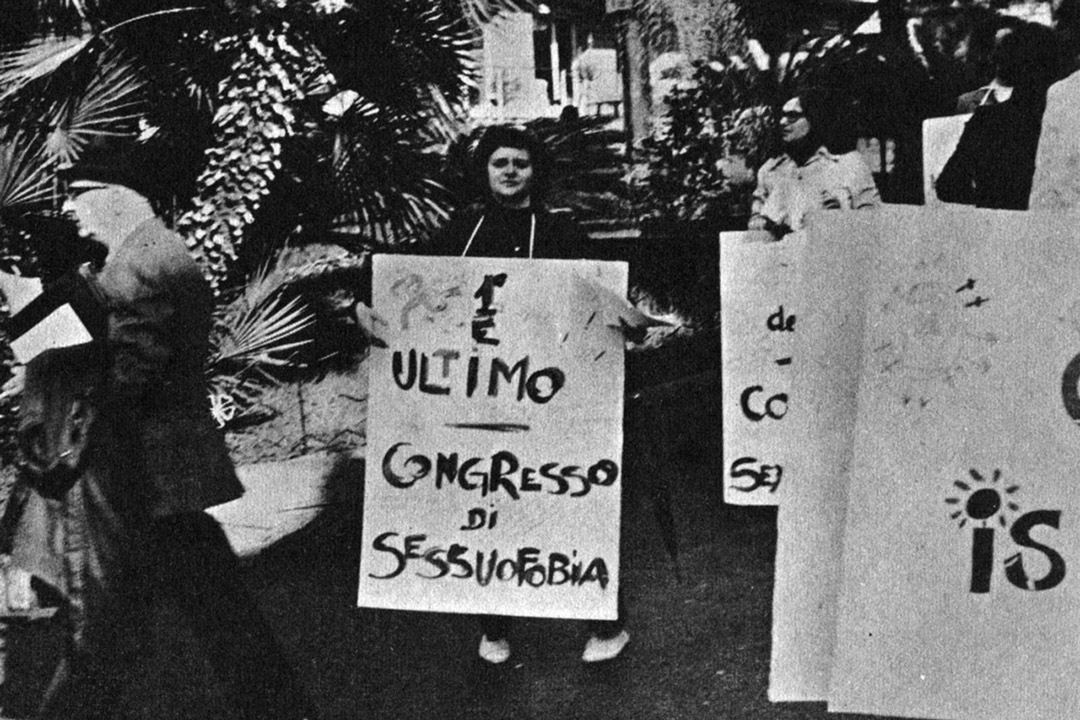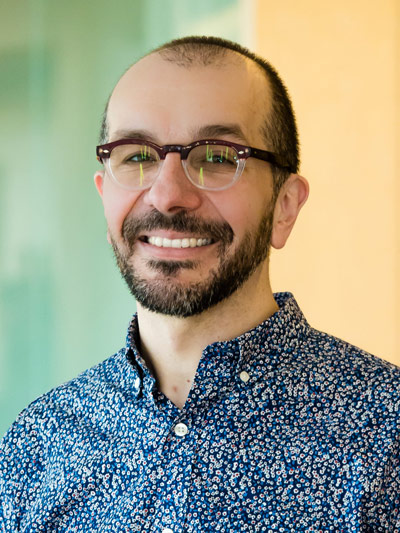
USask historian is cofounder of Italy’s first LGBT+ History Month
Gender and sexual diversity is rarely talked about in Italy. Dr. Alessio Ponzio (PhD) wants to change that.
By Chris PutnamA University of Saskatchewan (USask) historian hopes to inspire change in Italy with the creation of a national celebration of LGBT+ history.
Dr. Alessio Ponzio (PhD), an assistant professor of history in the College of Arts and Science, is one of the founding organizers of LGBT+ History Month Italia—a month-long celebration now underway for the first time in Italy.

“We hope we are going to bring a change. We hope that through this month, we are going to stimulate more and more teachers, more and more professors, more and more students, more and more young people, to understand (LGBT+) history. We want to push them to ask questions about this history,” Ponzio said.
Numerous countries around the world, including Canada, observe a month dedicated to lesbian, gay, bisexual and transgender history. Until now, Italy has not participated.
“As people who grew up in Italy, and knowing how this is not a topic that is discussed and how you might feel isolated, we decided that it was time to do something,” said Ponzio, who is gay and was born in Rome.
Ponzio and his fellow organizers created a website for LGBT+ History Month Italia and invited people and organizations across Italy to host their own LGBT+ history events throughout April. About 200 organizers responded by planning about 125 events—exhibitions, lectures, workshops and more.
“There is really so much going on and we were not expecting all this,” said Ponzio. “It’s overwhelming.”
The movement has gained widespread media attention in Italy and internationally, including a feature in Italy’s Rolling Stone magazine.
Ponzio is a specialist in modern European history and the history of gender and sexuality. He is one of the faculty members who designed the new Certificate in Queer Theory, Gender Diversity and Sexualities Studies launching this May in the College of Arts and Science.
Italy has a “complicated history” with sexuality, Ponzio said.
Homosexuality has been legal in Italy since the end of the 19th century, but it remains stigmatized. Same-sex couples can enter into civil unions but cannot adopt children or marry. Sex education is not mandatory in schools, and even at universities, the study of gender and sexuality is rare.
“We don't teach it. We don't talk about it,” said Ponzio.
The LGBT+ History Month Italia organizers hope the conversations prompted by events every April will have a ripple effect.
“This is (asking) a lot, but we hope to start kind of a cultural revolution, a cultural change. We think of the LGBT+ History Month as a cultural project, a social project, that goes beyond just the idea of history, but really is an intervention in Italian society,” Ponzio said.
Ponzio especially wants to educate Italy’s youth. He becomes emotional when he speaks of the experiences of LGBT+ students in high schools.
“I hope that people like me, when they are in high school, will not perceive themselves as nonexistent. You always feel that you’re alone, so I think it’s very important for students to understand that they are not. There is that history. There were people who were different sexually and from a gender perspective… So you are not the only one.”
Ponzio is participating remotely from Canada in several events for LGBT+ History Month Italia during the first half of April. Later in the month, he will travel to Italy to take part in talks and debates in Rome and Turin.
The USask historian has also been invited to be a founding member of the new International Committee on LGBT+ History Months. As one of two delegates from Italy, he will advise and support people around the world who want to establish LGBT+ history months in their own countries.
Ponzio is currently writing a book about the history of homosexuality in Italy in the 20th century. He is also working on a project funded by Canada’s Social Sciences and Humanities Research Council on the history of transnational queer activism.

